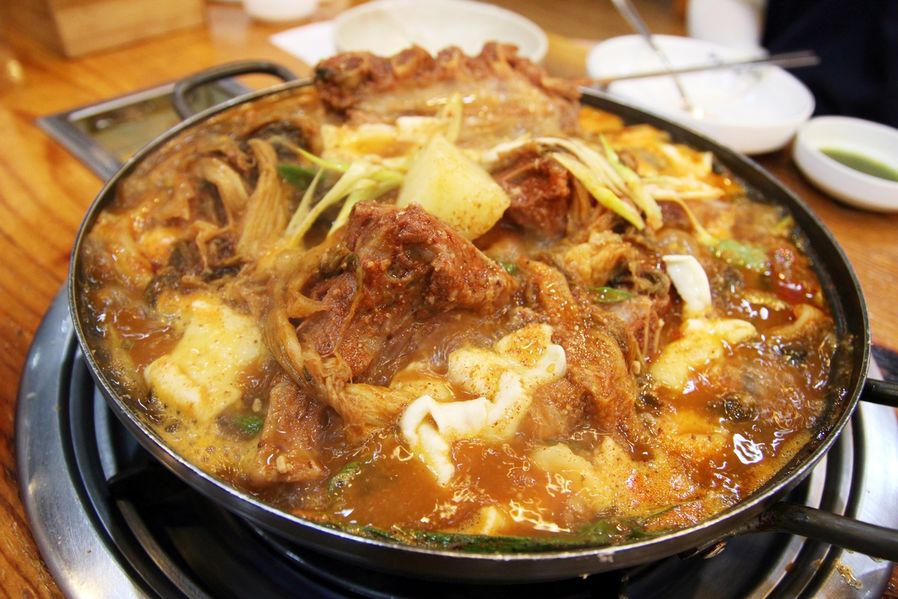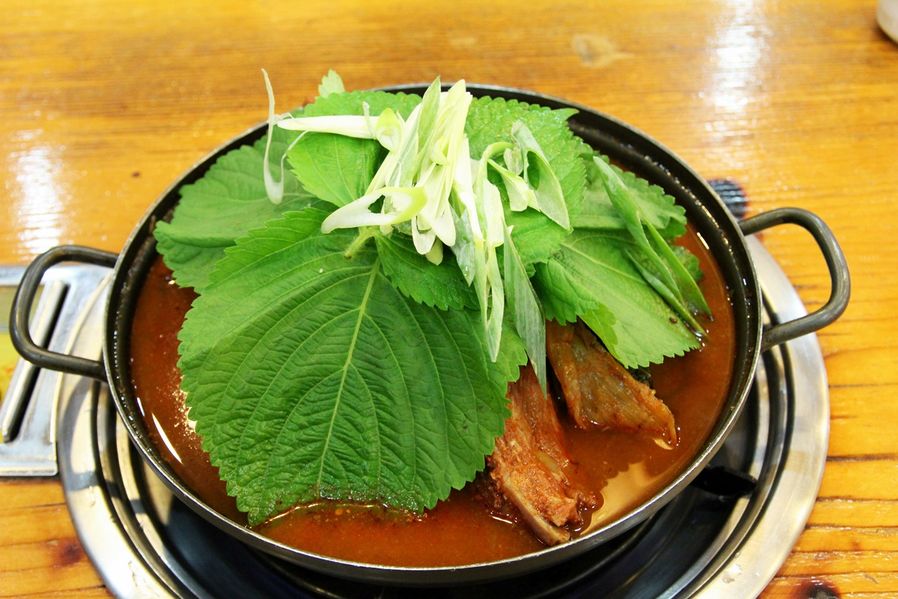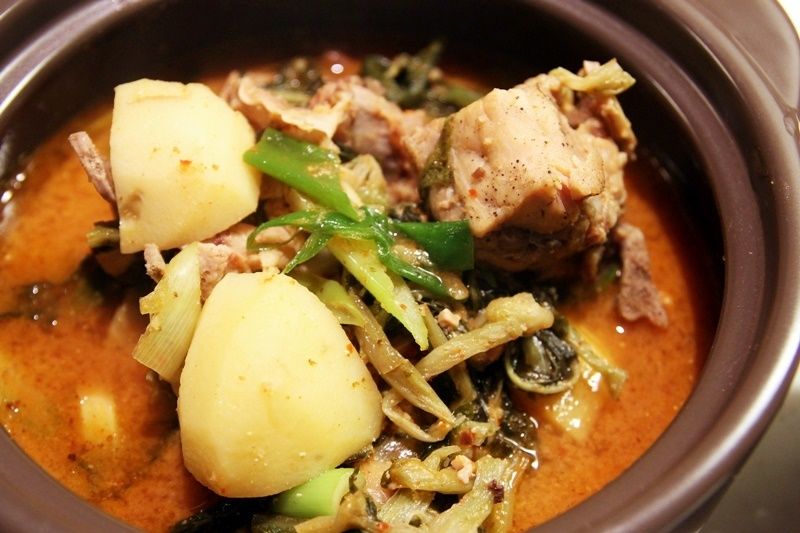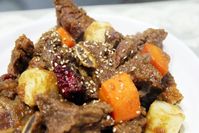1. Ingredients for Gamjatang
- Primary ingredients: Pork spines and potatoes
- Secondary ingredients: Vegetables (outer leaves of cabbage, welsh onion and garlic) and Korean traditional sauce (Deonjang and Gochujang paste)
2. Taste evaluation
-Spicy: ★★☆☆☆
-Salty: ★★★☆☆
-Sweet: ★☆☆☆☆
-Sour: ☆☆☆☆☆
-Toasted flavor (perilla seeds):★★☆☆☆
3. Introduction to Gamjatang 감자탕
Gamjatang is a spicy Korean stew that is boiled with pork ribs and potatoes for a long time. People love it because they can enjoy meat and vegetables at a reasonable price.
Gamjatang is believed to be originated in the South Jeolla province since the Three Kingdom Era. Originally, it was a stew boiled with pork ribs for old people who have weak bones or patients.
There are many stories how it became today’s Gamjatang.
The first story is that it used to be a pork rib stew and they added potatoes to it in the 1940s.
Second story is that Gamja in Gamjatang refers to pork bones, not potato, so people started to call this pork rib stew ‘Gamjatang.’
But the latter was less convincing so the cuisine with pork bones and potatoes became Gamjatang.

Canon EOS 550D | f/4.0 | iso 1250 | 2012:08:18 00:35:31 | Flash did not fire, compulsory flash mode | 17mm
Gamjatang is made by boiling pork spines for a long time, adding potatoes, cabbage leaves, welsh onions and garlics, and seasoning with Gochujang paste, Deonjang and chili powder.
There are so many Korean cuisines that use meat with bones in it.
The soup is nutritious and has deep flavor from bones.
Pork spines in Gamjatang make the soup taste deeper since they are boiled for a long time and the meat is very soft.
Potatoes and cabbage leaves add more taste and soup seasoned with Gochujang and Deonjang is properly spicy and salty.
Korean traditional sauces called Gochujang paste and Deonjang not only make the food spicy and salty but also have a deep flavor since they are fermented beans. The sauce makes the soup taste deeper.
The last ingredient called Deulggae(perilla seeds) makes the soup taste so toasted and tasty.
Gamjatang is characterized by deep flavor from different ingredients and sauces boiled with pork spines.
You could eat this complex taste at a reasonable price so you might as well try it at least once while you’re in Korea.
Search on Wikipedia
4. Kinds of Gamjatang
There are not many kinds of Gamjatang even if it’s a traditional food. But it’s what Koreans regularly eat so each restaurant uses unique recipes not to bore the customers.
There are three most well-known Gamjatang.
* Gamjatang – Regular stew of pork spines boiled for a long time with potatoes and outer leaves of cabbages and seasoned with Gochujang and Deonjang.
* Mugeunji (ripened Kimchi) Gamjatang – Ripened Kimchi is added to Gamjatang that has a strong flavor of Kimchi.
*Haemul (seafood) Gamjatang – Shrimps, octopus, and abalones are added to regular Gamjatang so it has flavors of seafood and plentiful of ingredients.

Canon EOS 550D | f/4.5 | iso 3200 | 2012:08:18 00:28:19 | Flash did not fire, compulsory flash mode | 28mm
5. How to enjoy Gamjatang even more
Gamjatang is made with pork spine.
But the meat is not cooked separately from the bones so you’d have to get the meat off the bones yourself.
And a small towel should be served with the food.
Wipe your hands, grab the bones and get the meat off the bones.
Koreans would do the same so you don’t have to be shy.
You would have to use your hands not to miss any meat.
Make another fun memory in Korea while you eat meat in Gamjatang with your hands just like you’d have to use hands when you eat curry in India.











